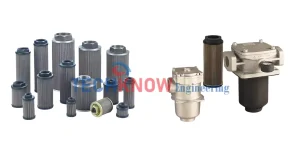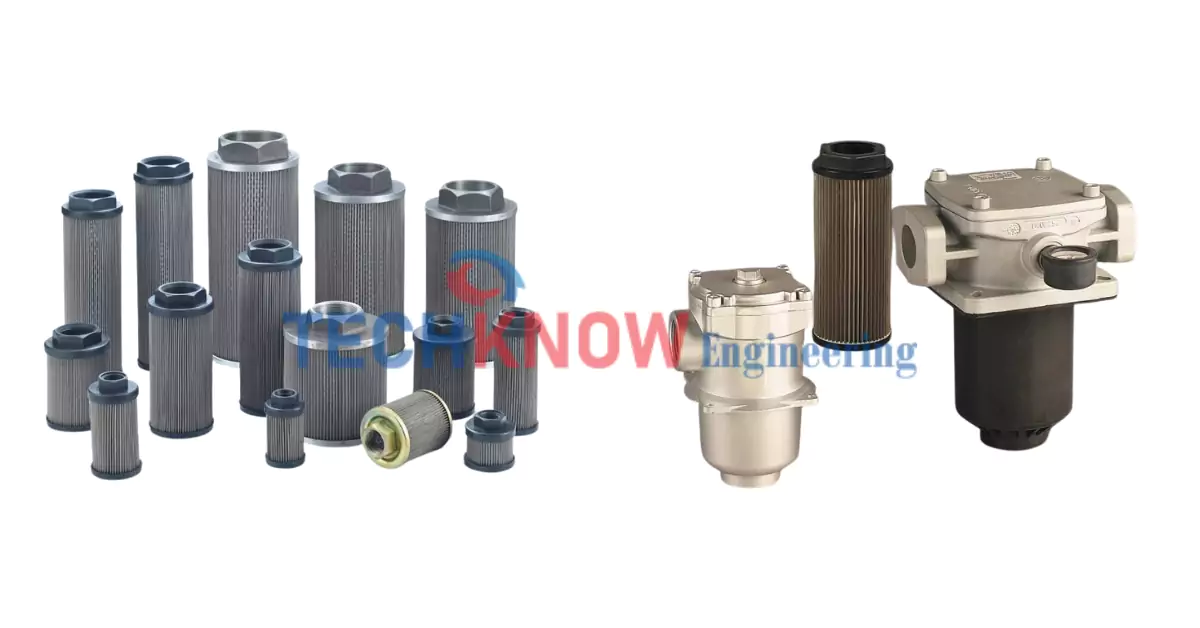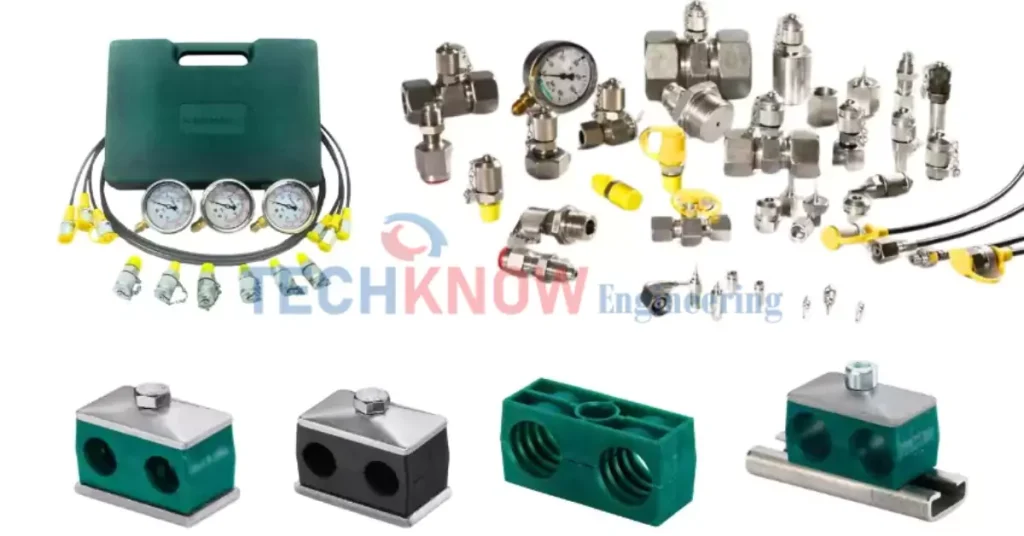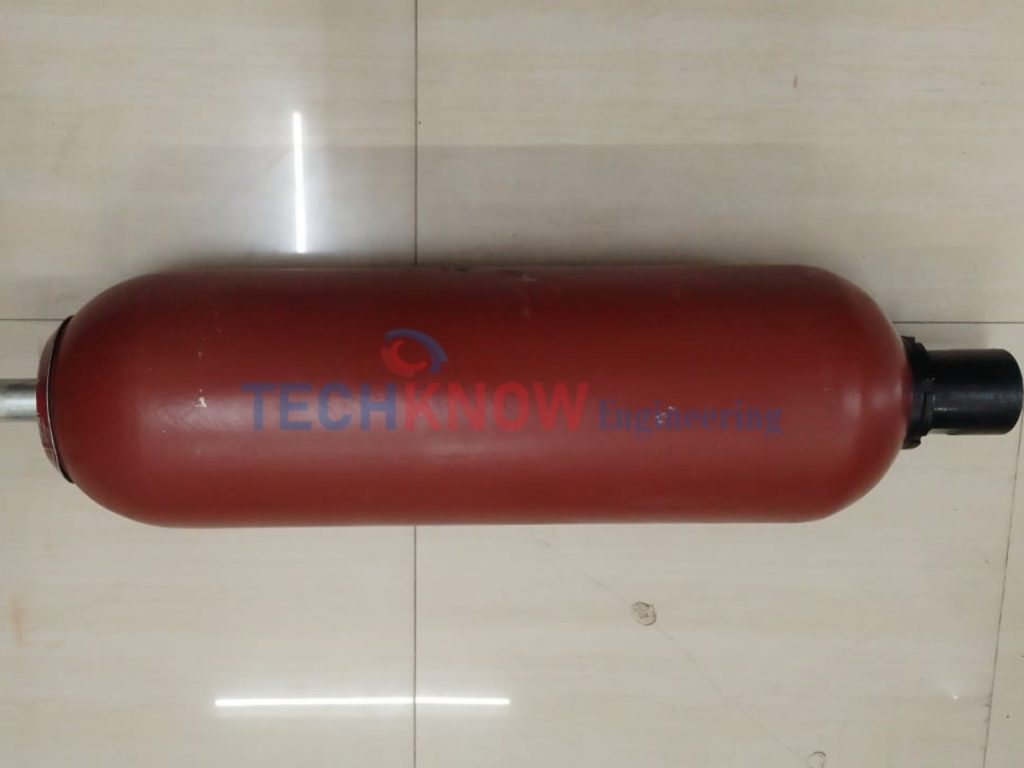What is a Hydraulic Filter Used For?
Hydraulic systems are the lifeblood of modern industrial machinery, ensuring smooth operations across sectors like manufacturing, construction, aerospace, and agriculture. However, like any high-performance system, hydraulics are incredibly sensitive to contaminants. That’s where hydraulic filters come into play, acting as essential components to keep these systems running efficiently and reliably. But what exactly do hydraulic filters do, and why are they so crucial?
This guide dives into the fundamentals of hydraulic filters, covering their types, benefits, maintenance, and future trends, so that whether you’re a mechanic, industrial engineer, or machine operator, you’ll know precisely how to use these essential tools to optimize performance. Along the way, we’ll discuss how Techknow Engineering Enterprises, distributors of HYDAC filters, can offer advanced solutions for your filtration needs.
Introduction to Hydraulic Systems and the Importance of Filtration
Hydraulic systems are used to transfer power through a liquid medium, usually oil. These systems are found in various applications—from lifting machinery in construction to powering advanced industrial robotics. But with great complexity comes a critical vulnerability to contamination. Dirt, water, metal particles, and other impurities can easily infiltrate the hydraulic fluid, causing wear, performance issues, and, ultimately, system failure.
Filtration plays the hero’s role in hydraulic systems by eliminating contaminants before they cause any damage. Hydraulic filters, such as HYDAC hydraulic filters, are purpose-built to ensure hydraulic systems operate smoothly and efficiently, protecting sensitive components like pumps, valves, and cylinders.
What is a Hydraulic Filter?
At its core, a hydraulic filter is a component designed to remove unwanted particles and contaminants from hydraulic fluid. By keeping the fluid clean, a hydraulic filter minimizes wear and tear in the system, prevents blockages, and ensures smooth operations.
Filters come in various types, including inline hydraulic filters, suction filters, and return line filters, with each designed for specific placements and purposes within the hydraulic system.
How it works:
- Filtration happens when hydraulic fluid passes through a filter element containing materials designed to trap particles.
- Some filters, like the off-line oil filter, operate in systems designed solely for filtration, while others are integrated into the main flow.
Top-tier systems often use trusted brands like HYDAC filter elements to ensure high performance.
Types of Hydraulic Filters
Understanding the types of hydraulic filters is essential for choosing the right one for your system. Below are the most common types:
1. Suction Filters
-
- Installed at the pump’s inlet to remove coarse particles before they reach the pump.
- Examples include suction filter hydraulic and suction filter elements, designed to prevent larger contaminants from entering the system.
-
- Positioned after the pump to trap contaminants produced during forceful operations.
- These can include in-line hydraulic filters.
3. Return Line Filters
-
- Found just before the fluid returns to the reservoir, these play a key role in removing contaminants generated during operation.
- Return line filters and hydraulic return line filters are examples that extend system life.
4. Breather Filters
-
- Used to release air from the system without allowing contaminants in. Examples include hydraulic breather filters and filter breathers.
By selecting from trusted distributors like Techknow Engineering Enterprises, which provide HYDAC hydraulic filter housings, organizations can ensure they use top-quality filtration solutions.
Contamination in Hydraulic Systems (Sources and Effects)
Contaminants can enter your hydraulic system from a number of sources:
- External dust or particles: Often introduced via reservoirs or component seals.
- Wear and tear particles: Generated as the system operates.
- Water contamination: Caused by condensation or leaks.
These contaminants can lead to:
- Component failure
- Decreased system efficiency
- Costly downtime
By using high-performing hydraulic tank breather filters, air breather filters, and HYDAC filters cross references, companies can mitigate these risks effectively.
Benefits of Using Hydraulic Filters
Using the right hydraulic filter offers numerous benefits:
- Extends Component Life: Filters like the suction filter hydraulic reduce wear on pumps, valves, and cylinders.
- Prevents Downtime: By ensuring fluids remain clean, filters like hydraulic return filter housings help keep systems running smoothly without unexpected failures.
- Improves Efficiency: High-quality inline filters and return filters maintain peak performance by preventing blockages.
- Cost Savings: By using durable options like HYDAC hydraulic filters, businesses reduce repair and maintenance costs.
How to Choose the Right Hydraulic Filter
Selecting the right filter depends on your system’s complexities. Consider the following factors:
- Filtration Rating: How fine or coarse the filter element is.
- Flow Capacity: The amount of fluid the filter can handle without affecting performance.
- Pressure Rating: The filter’s ability to handle high-pressure systems.
- Compatibility: Ensuring that the filter fits your system’s design. Utilize tools like HYDAC filter cross reference to help find compatible filters such as HYDAC filter elements or HYDAC inline filters.
Choosing the right filter supplier, such as Techknow Engineering Enterprises, ensures high-quality and tailored solutions for your hydraulic needs.
Maintenance and Replacement of Hydraulic Filters
Maintenance is key to ensuring optimal filter performance:
- Regular Inspections: Check filters for clogging. Using clogged filters like those in a hydraulic inline filter can stress the system.
- Follow Replacement Schedules: Replace elements like hydraulic suction filters when indicated by the manufacturer.
- Clean Surrounding Components: Ensure your hydraulic return filter housing is clean during replacements.
Regular maintenance helps to maintain the longevity of hydraulic systems.
Troubleshooting Common Hydraulic Filter Issues
- Clogged Filters: Look out for pressure drops and replace elements like inline filters.
- Leaks: Ensure filter housings, like HYDAC filter housings, are correctly installed and sealed.
- Incorrect Filter Installation: Check for compatibility using HYDAC filter cross reference tools.
Future Trends in Hydraulic Filtration Technology
With advancements in filter technology, we’re seeing exciting developments:
- Smart Filters: Filters that use sensors to monitor wear and clogging in real-time.
- Eco-Friendly Materials: Filters made from biodegradable components.
- Enhanced Efficiency: Lightweight and compact filters that don’t sacrifice performance, such as filtertechnik solutions.
Keep Your System Running with Techknow Engineering Enterprises
Choosing the right hydraulic filter is critical in maintaining system performance. From HYDAC filters to return filter solutions, the right options can dramatically improve your hydraulic system’s reliability and longevity.
At Techknow Engineering Enterprises, we’re proud distributors of HYDAC filters and elements designed to meet your system’s unique needs. Whether you’re dealing with a high-pressure system or need help with compatibility using HYDAC filter cross reference, we’ve got you covered.
Reach out today and invest in the best filtration for your industrial operations.
Hydraulic Filter

Learn how hydraulic filters safeguard machinery by preventing contaminants and ensuring optimal performance. Trusted brands like HYDAC offer reliable solutions for industrial systems. Find the perfect filter for your needs at Techknow Engineering Enterprises.
Product Brand: Techknow Engineering Enterprise
Product Currency: INR
Product In-Stock: InStock
5



